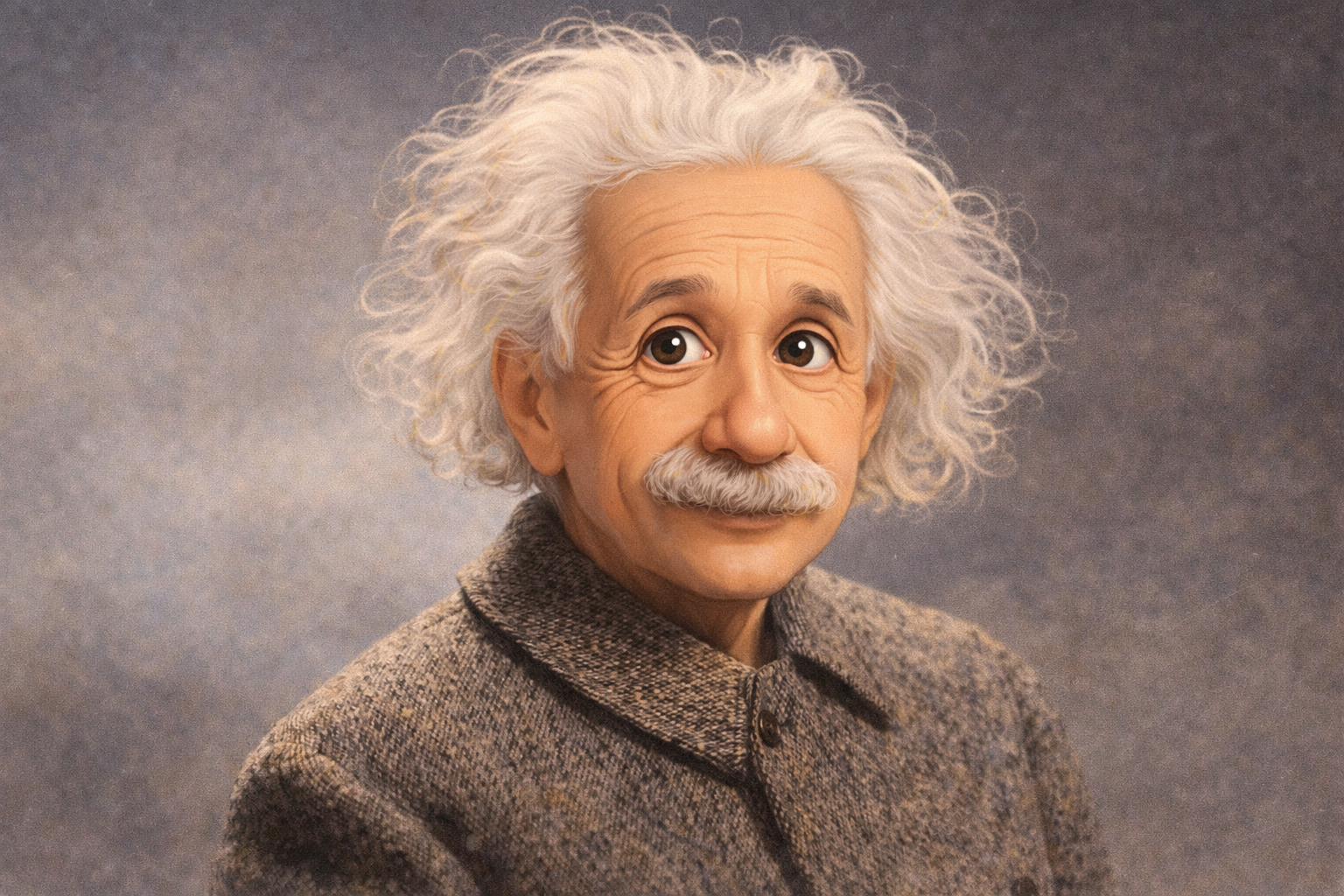On March 14, 1879, in the quiet German city of Ulm, a baby boy was born to Hermann and Pauline Einstein. He was slow to speak, worrying his parents, but curious from the start.
His mother encouraged his love of music, sitting him at the piano, while his father showed him a simple compass — an object that would change his life.
“That experience made a deep and lasting impression upon me. Something deeply hidden had to be behind things.”
That invisible force pulling the needle would awaken in Albert a lifetime of questions — questions that would bend the very fabric of how we understand the universe.
A Curious Mind in a Rigid World
Einstein grew up in Munich, where strict schoolmasters demanded obedience. But young Albert daydreamed. He preferred wandering through thought experiments — what would it look like to ride alongside a beam of light?
“Imagination is more important than knowledge. Knowledge is limited. Imagination encircles the world.”
By the time he was 15, he had dropped out of school and moved to Switzerland, where education was freer and less authoritarian.
A Patent Clerk with Big Ideas
After graduating from the Swiss Federal Polytechnic, Einstein could not land a teaching job. Instead, he took a position as a patent clerk in Bern. It turned out to be a blessing. Free from academic politics, he had hours to think, scribbling equations on scrap paper.
In 1905, while still working at the patent office, he published four groundbreaking papers — later called the Annus Mirabilis papers — introducing the theory of special relativity and forever changing physics.
“Time and space are modes by which we think, not conditions in which we live.”
The Reluctant Celebrity
Einstein became a professor, moving between Zurich, Prague, and Berlin. In 1915, he unveiled the general theory of relativity, showing that gravity was not a force but the curvature of space-time.
In 1919, astronomers confirmed his theory during a solar eclipse. Overnight, he became a global celebrity. Newspapers declared:
“Lights All Askew in the Heavens — Einstein’s Theory Triumphs.”
Yet fame never sat comfortably on his shoulders.
“I have no special talent. I am only passionately curious.”
A Voice of Conscience
When the Nazis rose to power, Einstein — a Jew — left Germany and accepted a position at Princeton University. He would never return to his homeland.
In America, he became a public intellectual, speaking out against fascism, racism, and war. He signed a letter to Franklin D. Roosevelt warning of nuclear weapons — a decision he later regretted as the atomic bomb was built and used.
“The world is a dangerous place to live; not because of the people who are evil, but because of the people who don’t do anything about it.”
The Later Years
Einstein spent his final decades at the Institute for Advanced Study, still chasing a “unified field theory” that would tie together all the forces of nature. Though he never found it, he never stopped trying.
“The important thing is not to stop questioning. Curiosity has its own reason for existence.”
Einstein remained an icon but lived simply. He played his beloved violin, walked alone, and pondered the mysteries of a unified theory that eluded him.
He passed away on April 18, 1955, leaving behind more than theories — he left behind a way of looking at the world, one that urged humanity to keep seeking, keep questioning, keep imagining.
The Man Behind the Mind
Behind the genius was a man who was humble, humorous, sometimes stubborn, but always guided by wonder.
“Try not to become a man of success, but rather try to become a man of value.”
Albert Einstein redefined time, space, and energy. But beyond physics, he reminded humanity that humility, imagination, and compassion were as vital as science. As he once said:
“Only a life lived for others is a life worthwhile.”
“Life is like riding a bicycle. To keep your balance, you must keep moving.”
“Two things are infinite: the universe and human stupidity; and I’m not sure about the universe.”
“Out of clutter, find simplicity. From discord, find harmony. In the middle of difficulty lies opportunity.”
“Our task must be to free ourselves by widening our circle of compassion to embrace all living creatures and the whole of nature and its beauty.”
